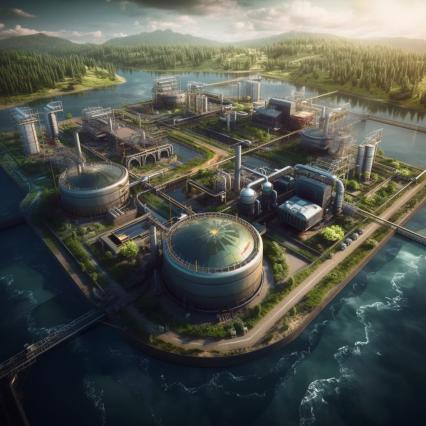Cali Neighborhood, 115th Street, No: 2, Nilufer, Bursa, Turkey


Cali Neighborhood, 115th Street, No: 2, Nilufer, Bursa, Turkey

Wastewater automation involves the use of technological tools and mechanisms to control and optimize wastewater management processes, typically including collection, treatment, and discharge stages. A robust wastewater automation system is critical for enhancing operational efficiency, reducing energy and operational costs, controlling wastewater treatment processes, and sustainably managing water resources.
Sensors and Monitors
Sensors and monitors form the backbone of wastewater automation. These devices continuously monitor various parameters involved in treatment processes. Commonly measured parameters include the water's pH level, temperature, dissolved oxygen level, and concentrations of various chemical and biological substances. These sensors continuously send the gathered data to the central control unit of the automation system.
Control System
The data collected is processed by the control unit of the automation system, which can be based on computer software or hardware. The control unit analyzes the incoming data and, based on this analysis, sends commands to control the wastewater treatment system. This includes controlling pumps, valves, and other mechanisms. The control unit can also identify abnormalities and potential issues, triggering alarms if necessary.
Wastewater automation systems also incorporate energy management. This involves monitoring and adjusting energy consumption as needed. For instance, reducing the speed of pumps when energy demand is low or increasing it when high. This enhances overall energy efficiency and reduces operational costs.
Network Communication and Data Management
Wastewater automation that includes network communication and data management involves storing and analyzing collected data in a central database. This is essential for assessing the performance of current processes and optimizing future operations. The central control unit can receive operational data and use this information to make operational decisions. Additionally, this data can be transferred across the network to other systems or units, thus providing better information for stakeholders' decision-making processes.
Advanced Technology Applications
Wastewater automation may also incorporate advanced technological applications such as Artificial Intelligence (AI) and Machine Learning (ML). These technologies automate the analysis and modeling of large datasets to further optimize wastewater treatment processes. For example, an AI algorithm can analyze sensor data to predict deviations in process parameters and facilitate rapid response, enhancing the efficiency and responsiveness of the treatment processes.